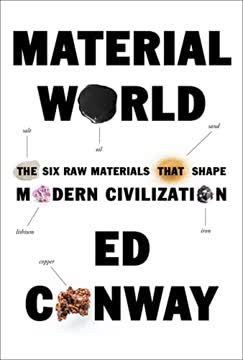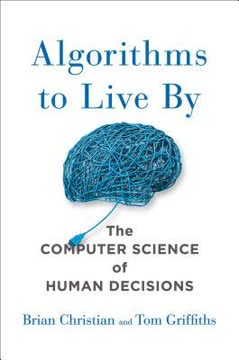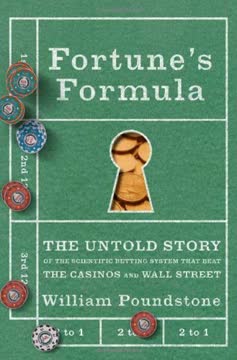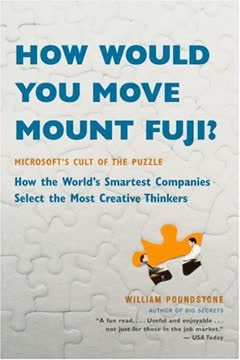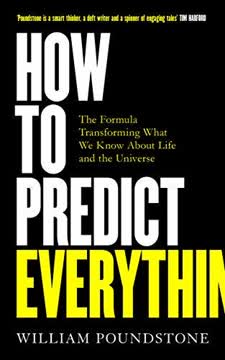نکات کلیدی
1. نادانی نقشههای ذهنی و تصمیمات ما را تحریف میکند
افراد کماطلاع لزوماً کمتر نمیدانند. آنها فقط چیزهای متفاوتی میدانند.
ادراکات تحریفشده. نادانی، بهویژه در زمینههای جغرافیا، اعداد بزرگ و جمعیتشناسی، منجر به ایجاد نقشههای ذهنی تحریفشده از جهان میشود. این موضوع به نوبه خود بر انتخابها، رفتارها و نظرات در حوزههای شخصی و عمومی تأثیر میگذارد. بهعنوان مثال، عدم آگاهی جغرافیایی میتواند منجر به حمایت از مداخلات نظامی در مناطقی شود که مردم حتی نمیتوانند آنها را روی نقشه پیدا کنند.
نمونههایی از دانش تحریفشده:
- اشتباه گرفتن آفریقا بهعنوان یک مکان همگن و واحد
- ناتوانی در شناسایی کشورهای خبری مانند اوکراین یا افغانستان
- سوءتفاهم در مورد اندازه بدهی ملی یا کسری
- برآورد بیش از حد اندازه گروههای اقلیت
عواقب نادانی. این تصورات نادرست میتوانند عواقب قابل توجهی داشته باشند و بر نظرات سیاسی، حمایت از سیاستهایی مانند حصارهای مرزی و حتی تصمیمات شخصی مرتبط با سلامت و ایمنی تأثیر بگذارند.
2. دانش با موفقیت مالی همبستگی دارد
توانایی پاسخ به سوالات بهاصطلاح بیاهمیت با درآمد بالاتر و دیگر شاخصهای یک زندگی موفق همبستگی دارد.
پاداش دانش. دانش واقعی، حتی اطلاعات بهظاهر بیاهمیت، با درآمد بالاتر و دیگر نشانههای موفقیت همبستگی دارد. این "پاداش دانش" حتی زمانی که تحصیلات رسمی و سن را در نظر بگیریم، همچنان وجود دارد.
نمونههایی از دانش که درآمد را پیشبینی میکند:
- دانستن پایتخت برزیل
- درک مفاهیم پایه علمی
- توانایی نام بردن از مقامات منتخب
- دانستن اطلاعات ورزشی
توضیحات ممکن. این همبستگی ممکن است به چندین عامل مربوط باشد، از جمله مهارتهای بهتر در تصمیمگیری، تواناییهای ارتباطی بهبود یافته و احتمال بیشتر ازدواج با همسران تحصیلکرده و مالی امن.
3. اثر دانینگ-کروگر در فرهنگی مقاوم به واقعیت شکوفا میشود
اثر دانینگ-کروگر به حداقل دانش و تجربه در زمینهای که در آن نادان هستید (و نادانی خود را نمیدانید) نیاز دارد.
نادانی از نادانی. اثر دانینگ-کروگر پدیدهای را توصیف میکند که در آن افرادی که کمترین دانش و مهارت را دارند، کمترین توانایی را در درک کمبود خود دارند. این میتواند منجر به ارزیابیهای خودبزرگبینانه و اعتماد به نفس بیش از حد شود.
نمونههایی از اثر دانینگ-کروگر:
- رانندگان بد که فکر میکنند رانندگان خوبی هستند
- دارندگان سلاح با دانش محدود در ایمنی سلاح که دانش خود را بیش از حد برآورد میکنند
- افرادی با مهارتهای ضعیف گرامر که در توانایی خود برای قضاوت در مورد گرامر مطمئن هستند
آمریکای معاصر. این اثر در آمریکای معاصر تشدید میشود، جایی که فرهنگی که به واقعیت اهمیت نمیدهد میتواند منجر به عدم آگاهی از نادانی خود شود.
4. مصرف رسانهای دانش و اطلاعات نادرست را شکل میدهد
خطر بزرگ این نیست که اینترنت ما را کمتر آگاه یا حتی ناآگاه میکند. بلکه این است که ممکن است ما را به نادانی متا تبدیل کند—کمتر آگاه از آنچه نمیدانیم.
تأثیر رسانهها. چشمانداز رسانهای نقش مهمی در شکلدهی به آنچه میدانیم و آنچه فکر میکنیم میدانیم ایفا میکند. گزارشدهی انتخابی، حاشیهسازی و گسترش اطلاعات نادرست میتوانند همگی به ادراکات تحریفشده از واقعیت کمک کنند.
نمونههایی از اطلاعات نادرست ناشی از رسانهها:
- باور به اینکه نرخ جرم در حال افزایش است در حالی که در واقع در حال کاهش است
- برآورد بیش از حد اندازه گروههای اقلیت
- سوءتفاهم در مورد علل تغییرات اقلیمی
- باور به نظریههای توطئه
اهمیت تفکر انتقادی. آگاهی از پتانسیل رسانهها برای نادرستسازی اطلاعات و توسعه مهارتهای تفکر انتقادی برای ارزیابی اطلاعات و تمایز واقعیت از خیال بسیار مهم است.
5. نادانی منطقی و ارزش دانستن
واکنش متعارف به چنین گزارشهایی ترکیبی از شوک و سرگرمی است. چقدر وحشتناک است که جوانان/شهروندان عادی کم میدانند—درست است؟ ارزش پرسیدن این است که چگونه میدانیم اینقدر وحشتناک است و آیا اصلاً وحشتناک است.
نادانی منطقی. اقتصاددان آنتونی داونز استدلال کرد که نادانی میتواند منطقی باشد زمانی که تلاش لازم برای کسب دانش بیشتر از مزیت داشتن آن باشد. با این حال، این میتواند منجر به جامعهای شود که افراد از نادانی خود بیخبرند و به همین دلیل تصمیمات ضعیفی میگیرند.
ارزش دانستن. با وجود سهولت دسترسی به اطلاعات آنلاین، هنوز هم ارزش داشتن یک پایه از دانش واقعی وجود دارد. این دانش زمینه را فراهم میکند، ارتباطات را بهبود میبخشد و امکان تصمیمگیری بهتر را فراهم میآورد.
افراد کماطلاع. افراد کماطلاع لزوماً کمتر نمیدانند، آنها فقط چیزهای متفاوتی میدانند. یک گیمر که تمام وقت آزاد خود را صرف بازیهای ویدیویی میکند، درک دایرهالمعارفی از آن بازیها خواهد داشت. او تنها بهخاطر استانداردهای دلخواهی که در مورد آنچه مهم است، کماطلاع است.
6. اثر گوگل: برونسپاری حافظه و عواقب آن
بنابراین حقایق زمانی که مردم باور دارند که این حقایق بایگانی خواهند شد، بیشتر فراموش میشوند. این پدیده نامی به خود گرفته است—اثر گوگل—که توصیفکننده فراموشی خودکار اطلاعاتی است که میتوان بهراحتی آنلاین پیدا کرد.
اثر گوگل. "اثر گوگل" تمایل به فراموش کردن اطلاعاتی را توصیف میکند که بهراحتی آنلاین قابل دسترسی است. این به این دلیل است که مغز ما به یادآوری مکان پیدا کردن اطلاعات بیشتر از خود اطلاعات اولویت میدهد.
عواقب اثر گوگل:
- کاهش نگهداری حقایق
- افزایش وابستگی به حافظه منبع
- پتانسیل برای اثرات شبیه به فراموشی ناشی از دسترسی مداوم به اطلاعات
حافظه توزیعشده. ابر، دوستی است که همهچیز را میداند. همیشه در دسترس است، پاسخ را در چند ثانیه ارائه میدهد و هرگز از سوالات احمقانه ناراحت نمیشود. تعجبی ندارد که ما به آن تا حدی وابسته شدهایم که به نظر میرسد غیرمنطقی است.
7. توهم دانش و فرسایش تخصص
کپی کردن پاسخها از گوگل یا ویکیپدیا باعث میشود افراد احساس کنند "من باهوش هستم" (یکی از جملات موافق یا مخالف).
توهم دانش. سهولت دسترسی به اطلاعات آنلاین میتواند توهم دانش ایجاد کند و منجر به این شود که افراد تواناییها و تخصصهای خود را بیش از حد برآورد کنند. این میتواند عواقب منفی در زمینههایی مانند سرقت ادبی و تصمیمگیری داشته باشد.
فرسایش تخصص. اینترنت همچنین ممکن است ارزش تخصص را کاهش دهد، زیرا افراد بهطور فزایندهای به منابع آنلاین تکیه میکنند بهجای مشاوره با کارشناسان. این میتواند منجر به کاهش کیفیت اطلاعات و مشاوره شود.
دسترسی آسان به ابر. اکنون دسترسی به ابر آسان است و این روند تنها در آینده نزدیک بیشتر هموار خواهد شد. بخشی از فیلم "انی هال" (1977) بهنظر میرسد که از مد افتاده است—یا آیا پیشگویی است؟
8. اهمیت سواد فرهنگی در دنیای پیچیده
پذیرش استدلال اساسی هیرش آسان است؛ اما مشخص نیست که تا چه حد باید آن را پیش ببریم.
سواد فرهنگی. ای.دی. هیرش جونیور استدلال کرد که یک بدنه مشترک از دانش برای ارتباط مؤثر و درک فرهنگی ضروری است. این "سواد فرهنگی" شامل دانش تاریخ، ادبیات، هنر و دیگر جنبههای فرهنگ است.
فرسایش سواد فرهنگی. شواهدی وجود دارد که نشان میدهد سواد فرهنگی در حال کاهش است، بهویژه در میان نسلهای جوانتر. این میتواند منجر به دشواری در درک ارجاعات تاریخی، قدردانی از هنر و ادبیات و شرکت در بحثهای آگاهانه شود.
ارزش سواد فرهنگی. سواد فرهنگی تنها به دانستن حقایق مربوط نمیشود؛ بلکه همچنین به توسعه مهارتهای تفکر انتقادی، قدردانی از دیدگاههای مختلف و درگیر شدن با جهان بهطرز معناداری مربوط میشود.
9. استراتژیهایی برای پیمایش در دنیای بیسواد فرهنگی
چالش بزرگ یک جامعه آزاد، اتخاذ تصمیمات خوب در شرایطی است که تقریباً همه ناآگاه هستند.
چالش اطلاعات نادرست. در دنیایی که اطلاعات نادرست در آن رواج دارد، توسعه استراتژیهایی برای پیمایش در چشمانداز اطلاعات و اتخاذ تصمیمات آگاهانه بسیار مهم است. این شامل:
- توسعه مهارتهای تفکر انتقادی
- جستجوی منابع متنوع اطلاعات
- آگاهی از تعصبات خود
- شرکت در گفتوگوهای محترمانه با دیگران
اهمیت آموزش. آموزش نقش حیاتی در تجهیز افراد با دانش و مهارتهای لازم برای پیمایش در دنیای پیچیده و بهسرعت در حال تغییر ایفا میکند. این شامل نه تنها دانش واقعی بلکه همچنین تفکر انتقادی، حل مسئله و مهارتهای ارتباطی است.
نیاز به شهروندان آگاه. دموکراسیها به خرد جمعی وابستهاند، اما جمعیتها زمانی که تعداد زیادی از آنها نقشههای ذهنی تحریفشده مشابهی دارند، کمتر خردمند هستند. برای اتخاذ تصمیمات منطقی در مورد اکثر مسائل سیاستی، ضروری است که رأیدهندگان برخی از آمارهای جمعیتی را بدانند و تفاوت بین یک میلیون، یک میلیارد و یک تریلیون را درک کنند.
آخرین بهروزرسانی::
FAQ
What is Head in the Cloud: Why Knowing Things Still Matters When Facts Are So Easy to Look Up by William Poundstone about?
- Exploration of knowledge in the digital age: The book investigates why knowing facts still matters, even when information is easily accessible online, and examines the paradox of widespread ignorance despite the availability of facts.
- Three-part thematic structure: Poundstone organizes the book around the Dunning-Kruger effect, the knowledge premium (how knowledge correlates with success), and strategies for navigating a culturally illiterate world.
- Use of original surveys: The author uses extensive surveys to map public knowledge, revealing gaps and their consequences for individuals and society.
- Cultural literacy and misinformation: The book also addresses how misinformation spreads and the importance of understanding context and critical thinking in the digital era.
Why should I read Head in the Cloud by William Poundstone?
- Challenges the “Google it” mindset: Poundstone demonstrates that knowledge enriches lives and is linked to practical benefits like financial literacy, health, and informed decision-making.
- Insight into cognitive biases: The book explains the Dunning-Kruger effect and other biases, helping readers recognize and overcome their own blind spots.
- Strategies for information overload: Readers gain practical advice on curating knowledge and managing digital media consumption to stay well-informed.
- Relevance to modern life: The book is essential for anyone interested in how digital tools shape our thinking, memory, and participation in society.
What are the key takeaways from Head in the Cloud by William Poundstone?
- Knowing facts still matters: Internalized knowledge provides a mental map for critical thinking and helps avoid the trap of not knowing what you don’t know.
- Knowledge correlates with success: General factual knowledge predicts higher income, better decision-making, and more nuanced opinions.
- Cultural literacy is essential: Understanding shared references enables informed conversations and citizenship, while faked or superficial literacy is increasingly common.
- Critical thinking and skepticism: The book emphasizes the need for skepticism, context, and research skills to navigate misinformation and information overload.
What is the Dunning-Kruger effect as explained in Head in the Cloud by William Poundstone?
- Definition and origin: The Dunning-Kruger effect is a cognitive bias where people with low ability or knowledge in a domain overestimate their competence, while experts may underestimate theirs.
- Real-world examples: Poundstone cites studies showing that unskilled individuals are often unaware of their ignorance, leading to inflated self-assessments and poor decisions.
- Broader implications: This effect explains why people hold distorted mental maps of reality, affecting decisions in politics, education, and daily life.
- Learning and self-awareness: Gaining competence not only improves skills but also enhances self-awareness, helping people recognize their limitations and seek further knowledge.
How does William Poundstone define and discuss the “Google effect” in Head in the Cloud?
- Definition of the Google effect: The Google effect is the tendency to forget information that can be easily found online, as the brain prioritizes remembering where to find facts rather than the facts themselves.
- Experimental evidence: Studies show people remember trivia facts less well when they believe the information is stored and accessible on a computer.
- Implications for memory: This shift in memory strategy reflects adaptation to distributed memory but may reduce deep knowledge retention and critical thinking.
- Risks of meta-ignorance: Relying solely on digital lookups can lead to being unaware of one’s own ignorance, making it harder to identify knowledge gaps.
How does factual knowledge correlate with income and success according to Head in the Cloud by William Poundstone?
- Strong positive correlation: Surveys show that people who answer more general-knowledge questions correctly tend to have higher household incomes, even when controlling for education and age.
- Beyond formal education: Knowledge predicts income beyond formal education, suggesting that broad factual knowledge confers advantages in communication, problem-solving, and social perception.
- Specific knowledge areas: Financial literacy and even sports trivia correlate strongly with income, indicating practical and culturally pervasive knowledge can impact earnings.
- Complex causality: The relationship may be bidirectional or influenced by factors like family background, memory, curiosity, and ambition.
What does Head in the Cloud by William Poundstone reveal about public knowledge and cultural literacy?
- Widespread ignorance: Surveys reveal that many adults and even college students lack basic knowledge in geography, history, science, and literature.
- Generational and international gaps: Millennials, despite being highly educated, often score lower on general knowledge tests compared to international peers.
- Consequences for society: Distorted mental maps influence political opinions and policy preferences, potentially undermining democratic decision-making.
- Fragmented and superficial literacy: Public knowledge often consists of disconnected facts or oversimplified narratives, with many people faking cultural literacy through spoilers or secondhand information.
How does Head in the Cloud by William Poundstone address misinformation and fake news?
- Spread of fake news: The book highlights how spoof and fake news sites spread false stories that are widely shared and mistaken for truth, especially on social media.
- Dunning-Kruger in media literacy: People least able to detect fake news often believe they are good judges of truth, fueling the viral spread of misinformation.
- Need for skepticism: Poundstone stresses the importance of critical thinking, contextual knowledge, and research skills to discern truth in the digital age.
- Role of context: Understanding the context and source of information is essential for resisting misinformation and making informed decisions.
What does Head in the Cloud by William Poundstone say about Americans’ knowledge of science and religion?
- Mixed scientific understanding: While many Americans know basic scientific facts, large minorities fail on fundamental questions about evolution, the big bang, and atomic structure.
- Religious ignorance despite faith: Many Americans are deeply religious but lack detailed knowledge about their own or other religions, partly due to limited religious education in schools.
- No link to happiness: The book finds no correlation between religious knowledge and self-reported happiness, income, or relationship status.
- Value of scientific and religious literacy: Both are essential for cultural literacy and understanding political and global conflicts, though the book questions how much knowledge is truly necessary.
How does Head in the Cloud by William Poundstone describe the state of political knowledge and its impact on democracy?
- Low political knowledge: Many voters cannot name their elected officials beyond the president and vice president, and have poor understanding of government functions and civics.
- Impact on elections: Low-information voters are more likely to be swayed by name recognition, character appeals, or partisan messaging rather than policy knowledge.
- Risks for democracy: Increasing voter turnout without improving political knowledge risks turning elections into lotteries, where choices are made randomly or based on superficial factors.
- Need for informed engagement: The book suggests that improving political knowledge is crucial for healthy democratic decision-making.
What practical strategies does William Poundstone recommend in Head in the Cloud for managing information overload and maintaining cultural literacy?
- Balanced news diet: Consume a mix of news sources that are not overly customized, such as NPR, newspapers, and curated TV shows, to get a broad and reasoned perspective.
- Limit junk browsing: Set specific times for recreational browsing and avoid news aggregators or social media as default homepages to reduce distractions.
- Avoid echo chambers: Supplement preferred news sources with diverse viewpoints to avoid living in an information bubble.
- Retain foundational knowledge: Build a critical mass of facts to enable effective use of digital resources and critical evaluation of information.
What is the fox and hedgehog metaphor in Head in the Cloud by William Poundstone, and how does it relate to knowledge and decision-making?
- Fox vs. hedgehog explained: The fox knows many things and embraces complexity, while the hedgehog knows one big thing and applies it rigidly; Poundstone favors the fox’s broad, contextual knowledge.
- Nuanced opinions: People with broader general knowledge tend to have more nuanced opinions and are less likely to hold knee-jerk reactions on controversial issues.
- Importance of humility: Broad knowledge fosters humility by revealing how much one does not know, which is essential for wise citizenship and decision-making.
- Shared reference points: Contextual knowledge provides shared cultural references, enabling more informed and reasoned public discourse.
نقد و بررسی
کتاب سر در ابر نظرات متنوعی را به خود جلب کرده است، بهطوریکه برخی از خوانندگان ایدههای تحریکآمیز آن درباره اهمیت دانش عمومی در عصر دیجیتال را ستایش میکنند. منتقدان به بررسی اثر دانینگ-کروگر و ارتباط بین دانش و موفقیت توسط پاوندستون توجه دارند. با این حال، بسیاری از افراد کتاب را تکراری، متمرکز بر ایالات متحده و با لحن تحقیرآمیز میدانند. برخی از منتقدان بر این باورند که پاوندستون مسائل پیچیده را بیش از حد سادهسازی کرده و تحلیل دقیقی از فرآیند کسب دانش ارائه نمیدهد. با وجود این انتقادات، خوانندگان بهطور کلی بر این نکته توافق دارند که کتاب سوالات مهمی درباره ارزش دانش در دورهای که دسترسی به اطلاعات آسان است، مطرح میکند.
Similar Books
